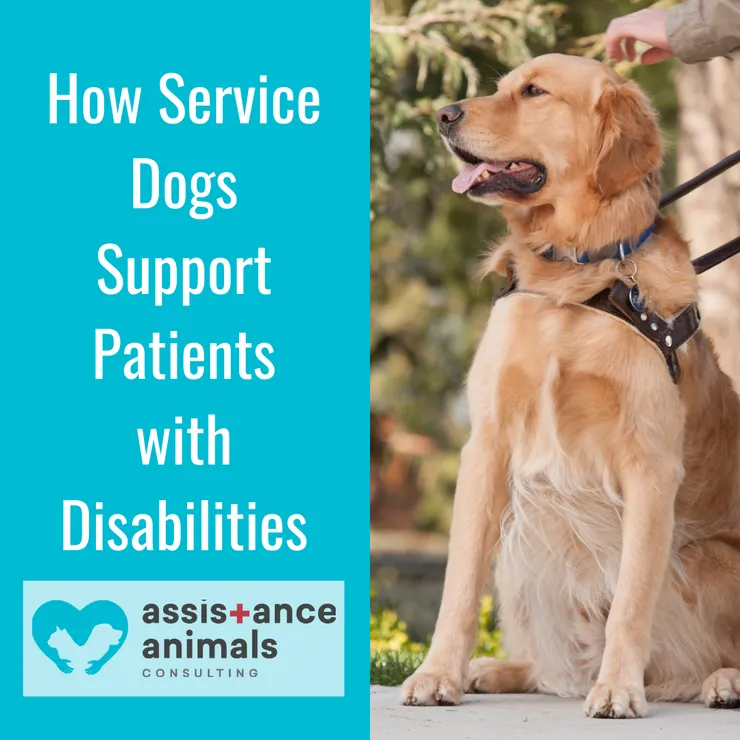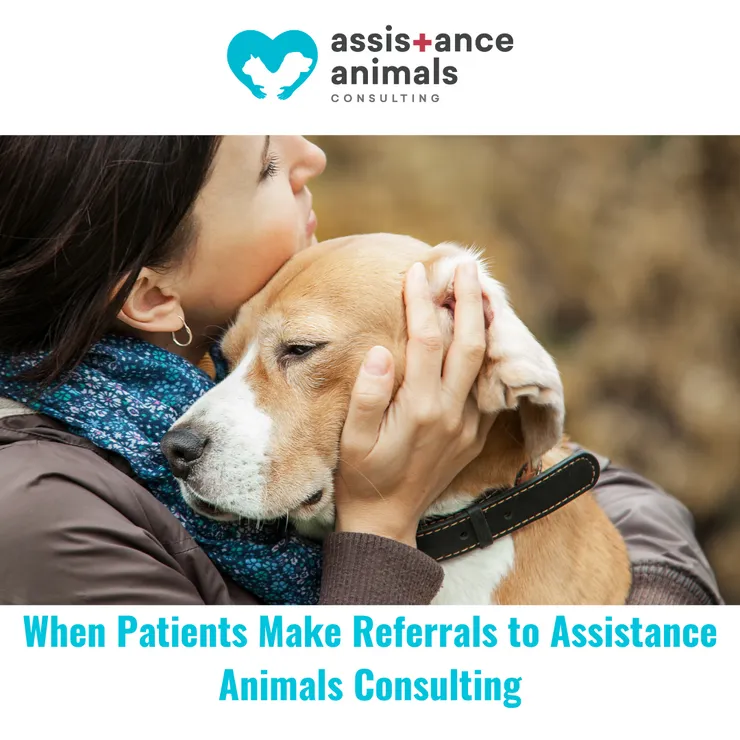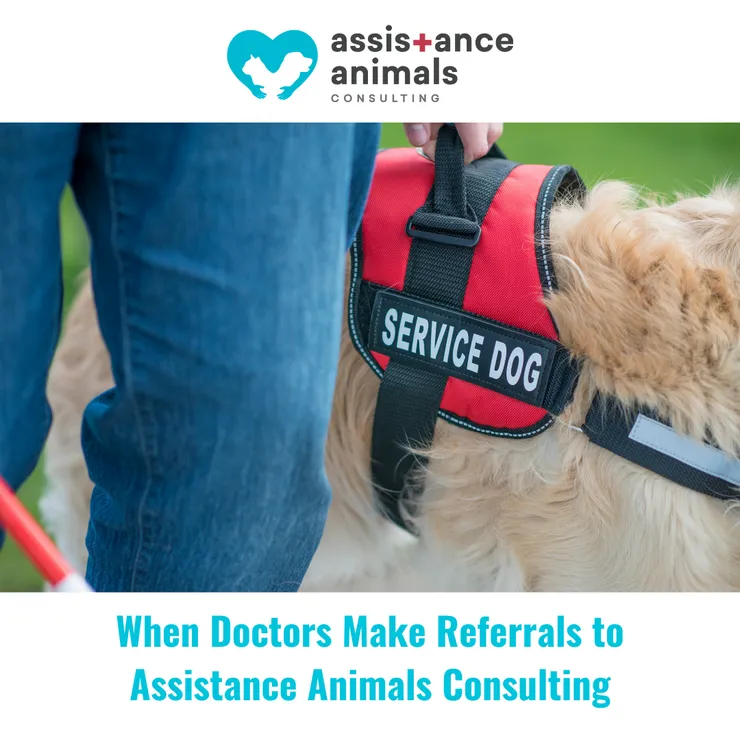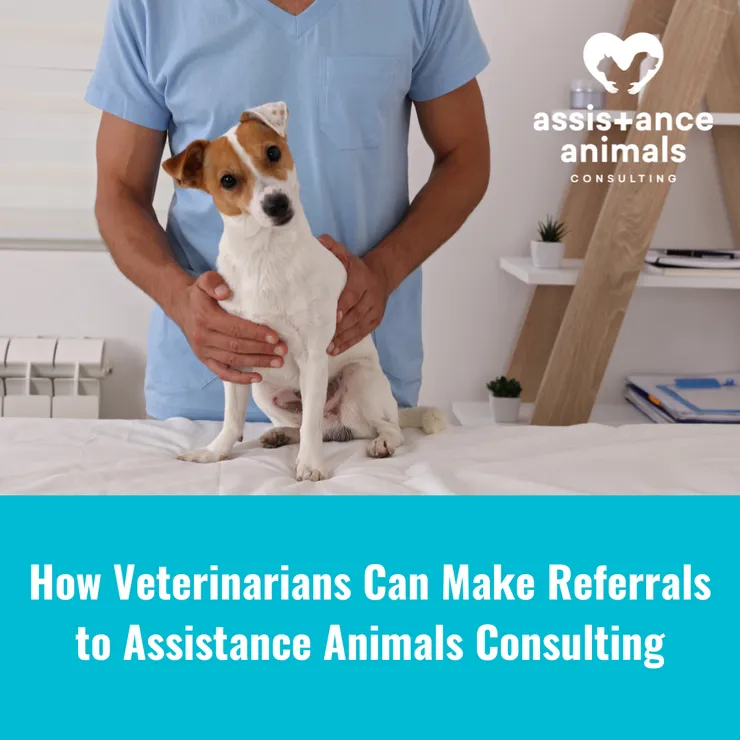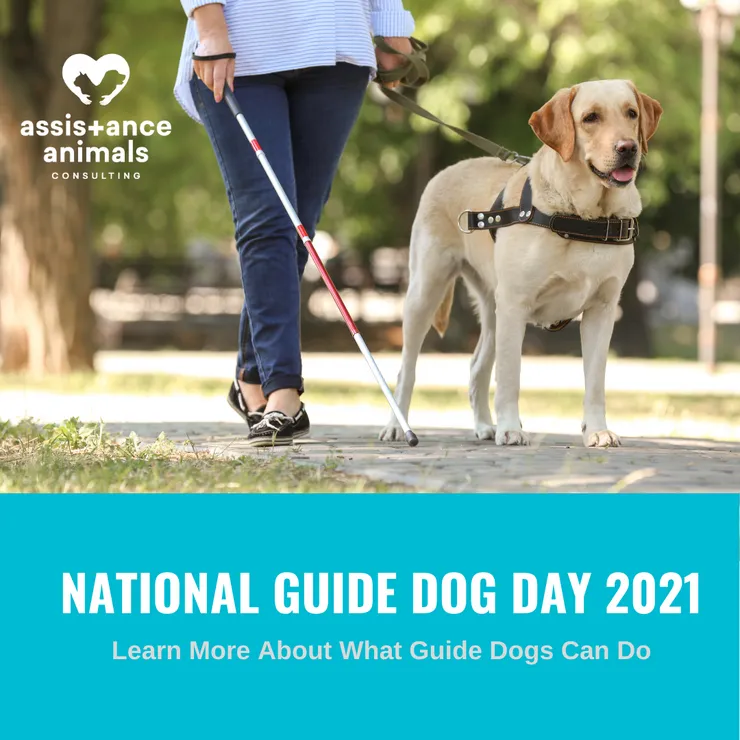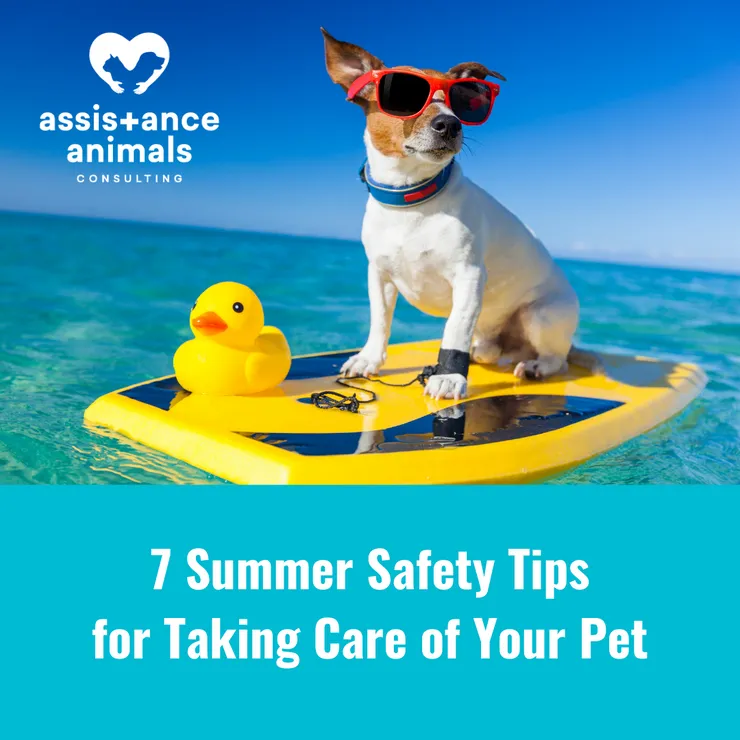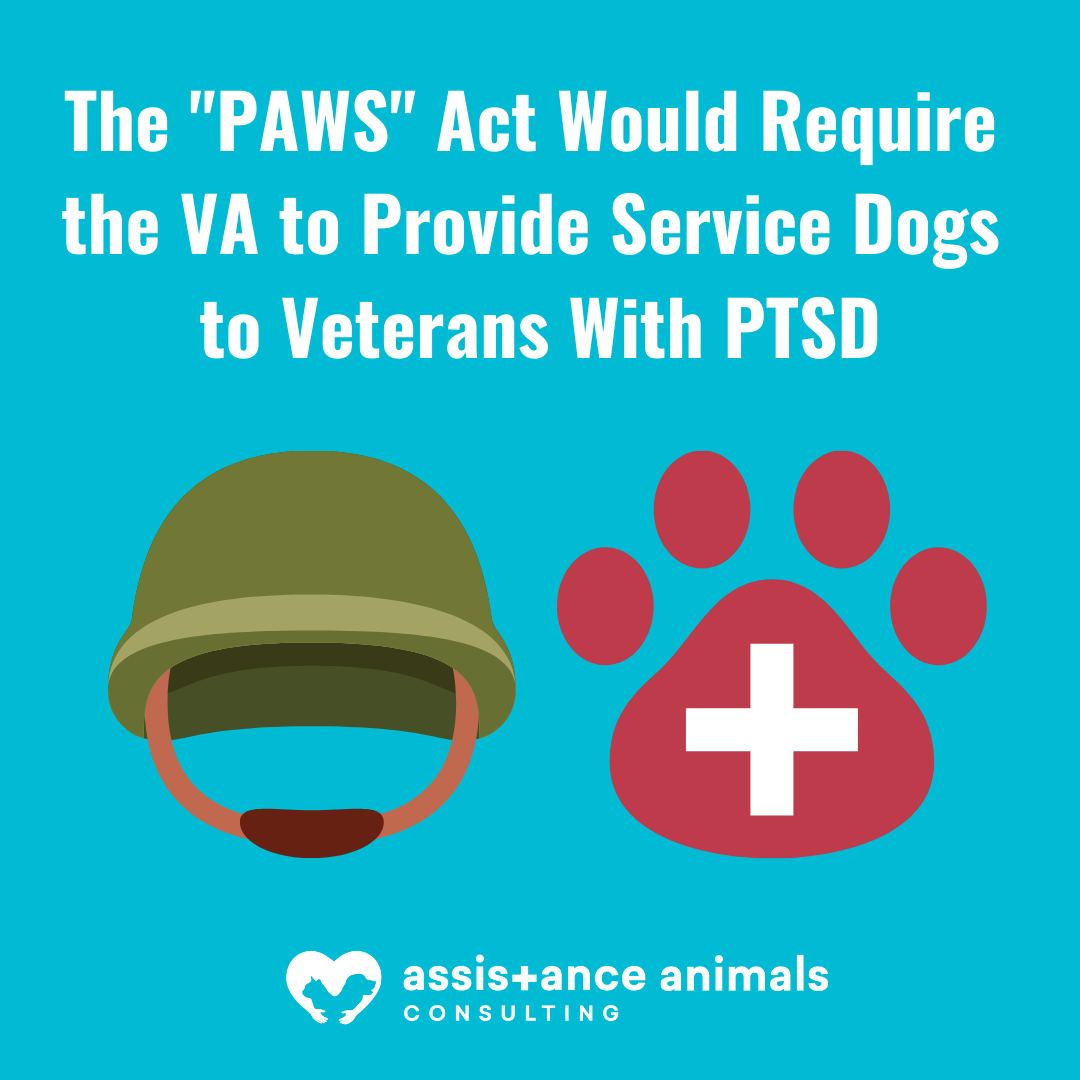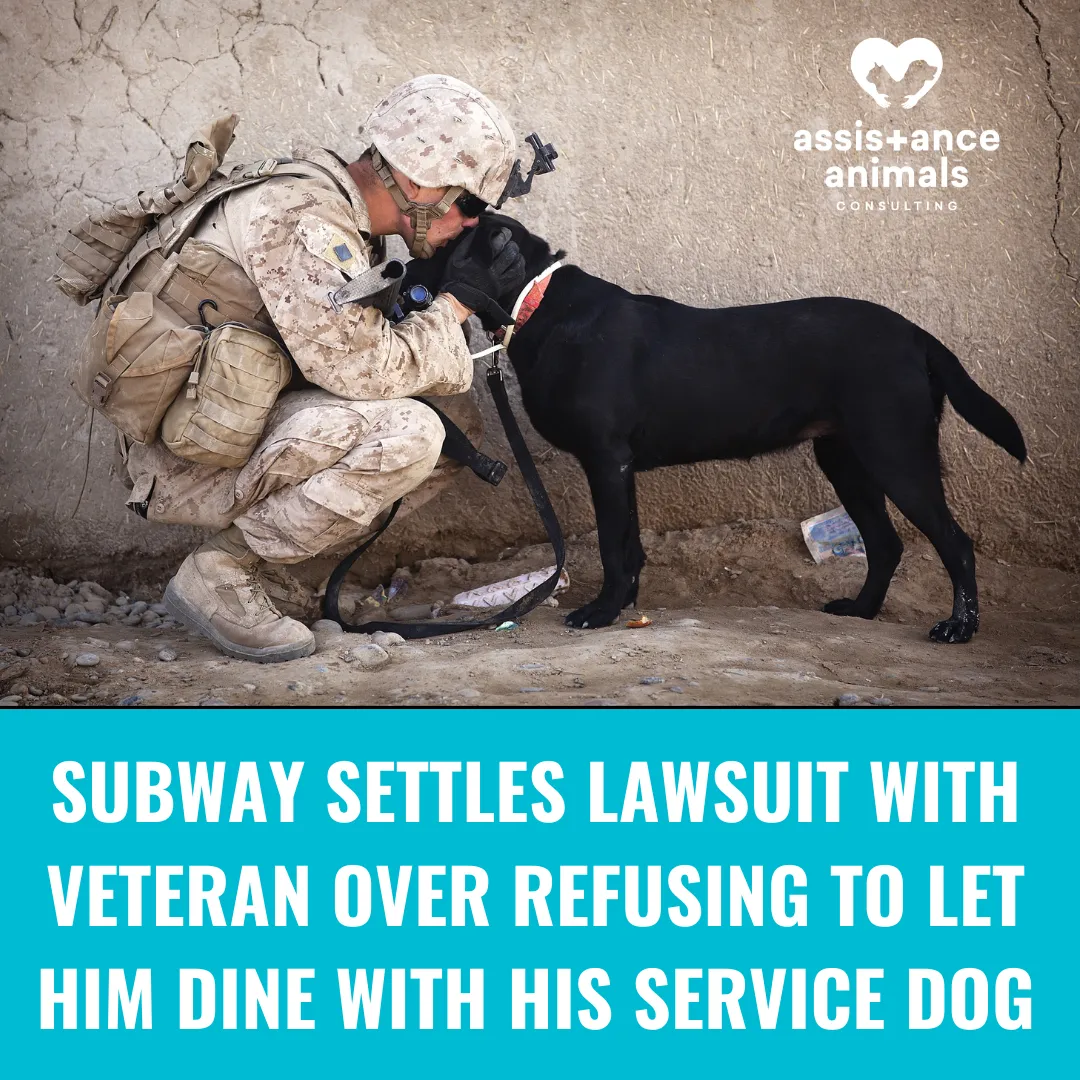26 Frequently Asked Questions about the ADA and Service Animals
26 Frequently Asked Questions about the ADA and Service Animals
According to ADA.gov website, the Department of Justice receives many questions about how the Americans with Disabilities Act (ADA) applies to service animals.
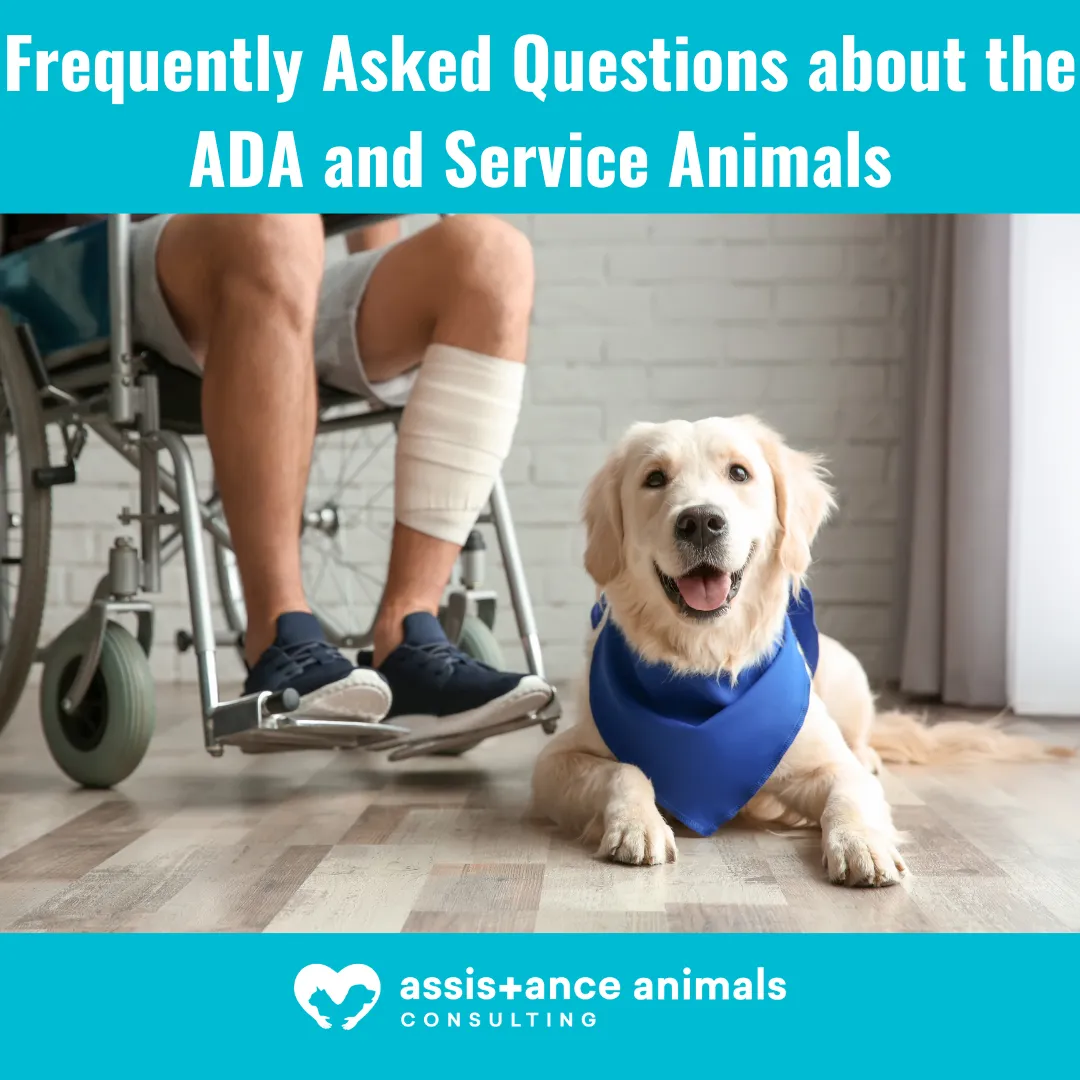
Many people with disabilities use a service animal in order to participate more fully in everyday life or use them for assistance as part of their treatment plans. Service Dogs can be trained to perform many important tasks to assist people with disabilities. For example, they can provide stability for a person who has difficulty walking, pick up items for a person who uses a wheelchair, or alert a person who has hearing loss when someone is approaching from behind.
The ADA requires State and local government agencies, businesses, and non-profit organizations (covered entities) that provide goods or services to the public to make "reasonable modifications" in their policies, practices, or procedures when necessary to accommodate people with disabilities. Service animal rules fall under this category. Based on the current guidelines many entities that have a "no pets" policy generally must modify the policy to allow service animals into their facilities.
This article will provide some guidance on the most frequently asked questions from the ADA's service animal provisions with answers sourced from their website. This should be read in conjunction with the publication ADA Revised Requirements: Service Animals to ensure you understand all provisions in the policy and how they might apply to you or your establishment.
1. What is a service animal?
Under the ADA, a service animal is defined as a dog that has been individually trained to do work or perform tasks for an individual with a disability. The task(s) performed by the dog must be directly related to the person's disability.
2. What does "do work or perform tasks" mean?
The dog must be trained to take a specific action when needed to assist the person with a disability. For example, a person with diabetes may have a dog that is trained to alert him when his blood sugar reaches high or low levels. A person with depression may have a dog that is trained to remind her to take her medication. Or, a person who has epilepsy may have a dog that is trained to detect the onset of a seizure and then help the person remain safe during the seizure.
3. Are emotional support, therapy, comfort, or companion animals considered service animals under the ADA?
No. These terms are used to describe animals that provide comfort just by being with a person. Because they have not been trained to perform a specific job or task, they do not qualify as service animals under the ADA. However, some State or local governments have laws that allow people to take emotional support animals into public places. You may check with your State and local government agencies to find out about these laws.
4. If someone's dog calms them when having an anxiety attack, does this qualify it as a service animal?
It depends. The ADA makes a distinction between psychiatric service animals and emotional support animals. If the dog has been trained to sense that an anxiety attack is about to happen and take a specific action to help avoid the attack or lessen its impact, that would qualify as a service animal. However, if the dog's mere presence provides comfort, that would not be considered a service animal under the ADA.
5. Does the ADA require service animals to be professionally trained?
No, it is not legally required. People with disabilities have the right to train the dog themselves and are not required to use a professional service dog training program. However, it is often advised if the person does not have the skills necessary to train the dog properly.
6. Are service-animals-in-training considered service animals under the ADA?
No. Under the ADA, the dog must already be trained before it can be taken into public places. However, some State or local laws cover animals that are still in training.
7. What questions can a covered entity's employees ask to determine if a dog is a service animal?
In situations where it is not obvious that the dog is a service animal, staff may ask only two specific questions: (1) is the dog a service animal required because of a disability? and (2) what work or task has the dog been trained to perform? Staff are not allowed to request any documentation for the dog, require that the dog demonstrate its task, or inquire about the nature of the person's disability.
8. Do service animals have to wear a vest or patch or special harness identifying them as service animals?
No. The ADA does not require service animals to wear a vest, ID tag, or specific harness. It may be useful to help others in public identify that your animal is a service animal, but it is not legally required.
9. Who is responsible for the care and supervision of a service animal?
The handler is responsible for caring for and supervising the service animal, which includes toileting, feeding, and grooming and veterinary care. Covered entities are not obligated to supervise or otherwise care for a service animal.
10. Can a person bring a service animal with them as they go through a salad bar or other self-service food lines?
Yes. Service animals must be allowed to accompany their handlers to and through self-service food lines. Similarly, service animals may not be prohibited from communal food preparation areas, such as are commonly found in shelters or dormitories.
11. Can hotels assign designated rooms for guests with service animals, out of consideration for other guests?
No. A guest with a disability who uses a service animal must be provided the same opportunity to reserve any available room at the hotel as other guests without disabilities. They may not be restricted to "pet-friendly" rooms.
12. Can hotels charge a cleaning fee for guests who have service animals?
No. Hotels are not permitted to charge guests for cleaning the hair or dander shed by a service animal. However, if a guest's service animal causes damages to a guest room, a hotel is permitted to charge the same fee for damages as charged to other guests.
13. Can people bring more than one service animal into a public place?
Generally, yes. Some people with disabilities may use more than one service animal to perform different tasks. For example, a person who has a visual disability and a seizure disorder may use one service animal to assist with way-finding and another that is trained as a seizure alert dog. Other people may need two service animals for the same task, such as a person who needs two dogs to assist him or her with stability when walking. Staff may ask the two permissible questions (See Question 7) about each of the dogs. If both dogs can be accommodated, both should be allowed in. In some circumstances, however, it may not be possible to accommodate more than one service animal. For example, in a crowded small restaurant, only one dog may be able to fit under the table. The only other place for the second dog would be in the aisle, which would block the space between tables. In this case, staff may request that one of the dogs be left outside.
14. Does a hospital have to allow an in-patient with a disability to keep a service animal in his or her room?
Generally, yes. Service animals must be allowed in patient rooms and anywhere else in the hospital the public and patients are allowed to go. They cannot be excluded on the grounds that staff can provide the same services.
15. Must a service animal be allowed to ride in an ambulance with its handler?
Generally, yes. However, if the space in the ambulance is crowded and the dog's presence would interfere with the emergency medical staff's ability to treat the patient, staff should make other arrangements to have the dog transported to the hospital.
16. Does the ADA require that service animals be certified as service animals?
No. Covered entities may not require documentation, such as proof that the animal has been certified, trained, or licensed as a service animal, as a condition for entry. **There are individuals and organizations that sell service animal certification or registration documents online. These documents do not convey any rights under the ADA and the Department of Justice does not recognize them as proof that the dog is a service animal.
17. My city requires all dogs to be vaccinated. Does this apply to my service animal?
Yes. Individuals who have service animals are not exempt from local animal control or public health requirements.
18. My city requires all dogs to be registered and licensed. Does this apply to my service animal?
Yes. Service animals are subject to local dog licensing and registration requirements.
19. My city requires me to register my dog as a service animal. Is this legal under the ADA? .
No. Mandatory registration of service animals is not permissible under the ADA. However, as stated above, service animals are subject to the same licensing and vaccination rules that are applied to all dogs.
20. My city / college offers a voluntary registry program for people with disabilities who use service animals and provides a special tag identifying the dogs as service animals. Is this legal under the ADA?
Yes. Colleges and other entities, such as local governments, may offer voluntary registries. Many communities maintain a voluntary registry that serves a public purpose, for example, to ensure that emergency staff know to look for service animals during an emergency evacuation process. Some offer a benefit, such as a reduced dog license fee, for individuals who register their service animals. Registries for purposes like this are permitted under the ADA. An entity may not, however, require that a dog be registered as a service animal as a condition of being permitted in public places. This would be a violation of the ADA.
21. Can service animals be any breed of dog?
Yes. The ADA does not restrict the type of dog breeds that can be service animals.
22. Can individuals with disabilities be refused access to a facility based solely on the breed of their service animal?
No. A service animal may not be excluded based on assumptions or stereotypes about the animal's breed or how the animal might behave. However, if a particular service animal behaves in a way that poses a direct threat to the health or safety of others, has a history of such behavior, or is not under the control of the handler, that animal may be excluded. If an animal is excluded for such reasons, staff must still offer their goods or services to the person without the animal present.
23. When can service animals be excluded?
The ADA does not require covered entities to modify policies, practices, or procedures if it would “fundamentally alter” the nature of the goods, services, programs, or activities provided to the public. Nor does it overrule legitimate safety requirements. If admitting service animals would fundamentally alter the nature of a service or program, service animals may be prohibited. In addition, if a particular service animal is out of control and the handler does not take effective action to control it, or if it is not housebroken, that animal may be excluded.
24. When might a service dog's presence fundamentally alter the nature of a service or program provided to the public?
In most settings, the presence of a service animal will not result in a fundamental alteration. However, there are some exceptions. For example, at a boarding school, service animals could be restricted from a specific area of a dormitory reserved specifically for students with allergies to dog dander. At a zoo, service animals can be restricted from areas where the animals on display are the natural prey or natural predators of dogs, where the presence of a dog would be disruptive, causing the displayed animals to behave aggressively or become agitated. They cannot be restricted from other areas of the zoo.
25. Are gyms, fitness centers, hotels, or municipalities that have swimming pools required to allow a service animal in the pool with its handler?
No. The ADA does not override public health rules that prohibit dogs in swimming pools. However, service animals must be allowed on the pool deck and in other areas where the public is allowed to go.
26. Do apartments, mobile home parks, and other residential properties have to comply with the ADA?
The ADA applies to housing programs administered by state and local governments, such as public housing authorities, and by places of public accommodation, such as public and private universities. In addition, the Fair Housing Act applies to virtually all types of housing, both public and privately-owned, including housing covered by the ADA. Under the Fair Housing Act, housing providers are obligated to permit, as a reasonable accommodation, the use of animals that work, provide assistance, or perform tasks that benefit persons with a disabilities, or provide emotional support to alleviate a symptom or effect of a disability. For information about these Fair Housing Act requirements see HUD’s Notice on Service Animals and Assistance Animals for People with Disabilities in Housing and HUD-funded Programs.
There are many questions and concerns for handlers, organizations, and businesses when it comes to the ADA guidelines and the use of service animals. For those who have additional questions our team is here to help. Contact Assistance Animals Consulting for a consultation to discuss your concerns or to get help with planning your policies.
